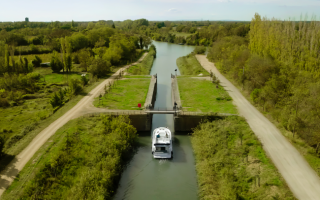French vineyards: 10 tips to make the most of your visit
Buy direct from winemakers and you’ll discover some great French wines. Expert Dominic Rippon passes on his top 10 tips for a successful vineyard visit
1 Pick your region
Most people know which wines they prefer – Bordeaux for the intellectual, Burgundy for the artist – but not all regions are equally well equipped for wine tourism. Burgundy estates remain less used to receiving visitors than their counterparts in Alsace, and while Champagne has become easier to explore, its estates mostly specialise in one kind of wine – and it isn’t cheap. If you’re looking to stock up in a single trip, visit a region such as Languedoc-Roussillon, which produces a variety of wines, from full-bodied reds to delicate sparklers.
2 Head off the beaten track
The famous villages of Burgundy’s Côte-d’Or – Puligny-Montrachet, Vosne-Romanée, Gevrey-Chambertin – read like a bucket list of vinous shrines. So pilgrims are often disappointed to find doors closed and cellars empty (many simply don’t have any wine left once the merchants have taken their allocation). A few kilometres down the road, however, you might find winemakers in a less eminent village such as Santenay or Marsannay-la-Côte more welcoming – and they frequently also own vineyards in the more prestigious appellations.
3 Choose your estate
Less fashionable sub-regions such as Bordeaux’s Entre-Deux-Mers are great spots for finding exciting winemakers whose prices are lower than those of their better-known colleagues. Their vineyards often nestle among field crops and meadows – a more scenic blend than the homogenous rows of vines found in more expensive appellations. Invest in the French wine buyer’s ‘bible’: the Guide Hachette des Vins. Pick estates from less famous areas that receive consistently high ratings; their wines will rarely disappoint and winemakers will be flattered that you’ve visited them rather than the usual suspects.
4 Go at the right time
Harvest is a great time to visit a wine region, but it can be a challenge to find vignerons with their hands free. The vendanges generally take place in September, depending on growing conditions and the region. The French take their holidays en masse in August, so this is also a hard time to find winemakers at home. I usually visit wineries either in June, when the weather is mild and the vines’ growth has begun; or in October, when the vineyards turn beautiful shades of golden brown.
5 Do your homework
Familiarise yourself with the local appellations, wines and your choice of winemaker. A little knowledge will encourage the vigneron to share more of their experience – and wine! The best winemakers are artisans of international repute and will expect you already to know a little about them.
6 Know the ropes
Always phone the estate in advance and, where the tasting is free, come ready to make a purchase. If you arrive by bicycle, you may struggle to persuade the vigneron to uncork his bottles, unless you intend to return later by car. Samples are an expensive treat and even the most generous grower needs to make a living. No winemaker will be offended if you spit, rather than swallow, his wine, but if you’re lucky enough to be offered a tasting from barrel, give what’s left in your glass back to the winemaker, as he may wish to return the sample to its barrique.
7 Buy carefully
Always check in advance whether an estate’s wines fit your budget. However, if you don’t enjoy the wines, then no discount or recommendation should oblige you to part with your euros. Keep a cool head when tasting: certain factors such as residual (unfermented) sugar may flatter the palate in a tasting, but make the wine less refreshing when quaffed at home. By comparison, a wine made for ageing might seem austere in youth, but soften with time in bottle. Remember to buy a good balance of different wines that you like to drink regularly.
8 Don’t get hung up on vintages
Forget everything you’ve heard about the ‘best years’, unless buying for investment. Good winemakers always make delicious wines. The benefit of visiting the estate is that you can judge for yourself and potentially bag a bargain from an unpopular year. Trust your own palate and don’t be afraid to ask to try wines from different vintages.
9 Be practical
Only buy what you can carry! If the winemaker has a reputable importer (in itself a good measure of his wines’ value), it may be easier to buy at home. It rarely makes sense to ship abroad by courier. Also consider whether you have appropriate storage space, with a constant, cool temperature. This is particularly important when buying wines that are unfiltered or contain little sulphur preservative; these (often organic) wines are prone to oxidise, turn to vinegar or re-ferment in bottle in less-than-ideal conditions.
10 Know some French
Your French doesn’t need to be perfect, but don’t assume that a winemaker will speak English. A little effort goes a long way and it’s worth learning some wine-specific vocabulary. Frequently used terms include:
Millésime = vintage
Vendange = harvest
Cépage = grape variety
Sec = dry
Doux = sweet
Vignoble = vineyard
Climat/clos = vineyard parcel
Bulles = bubbles/fizz
Bois = wood (ageing)
Cuvée = blend
Biologique = organic
Crachoir = spitoon
Bouchonné = corked
Find more tips for learning French here
Wine expert Dominic Rippon has many years’ experience in the wine trade, both in the UK and France, and now runs the wine merchant business Strictly Wine
Further reading
10 of the best food & wine tours in France
Christmas food and wine pairing
Real life: running private vineyard tours in Champagne
The process and legalities of buying a vineyard property in France
Exploring Languedoc’s wine country
Where to buy French property… if you want vineyards
Share to: Facebook Twitter LinkedIn Email


